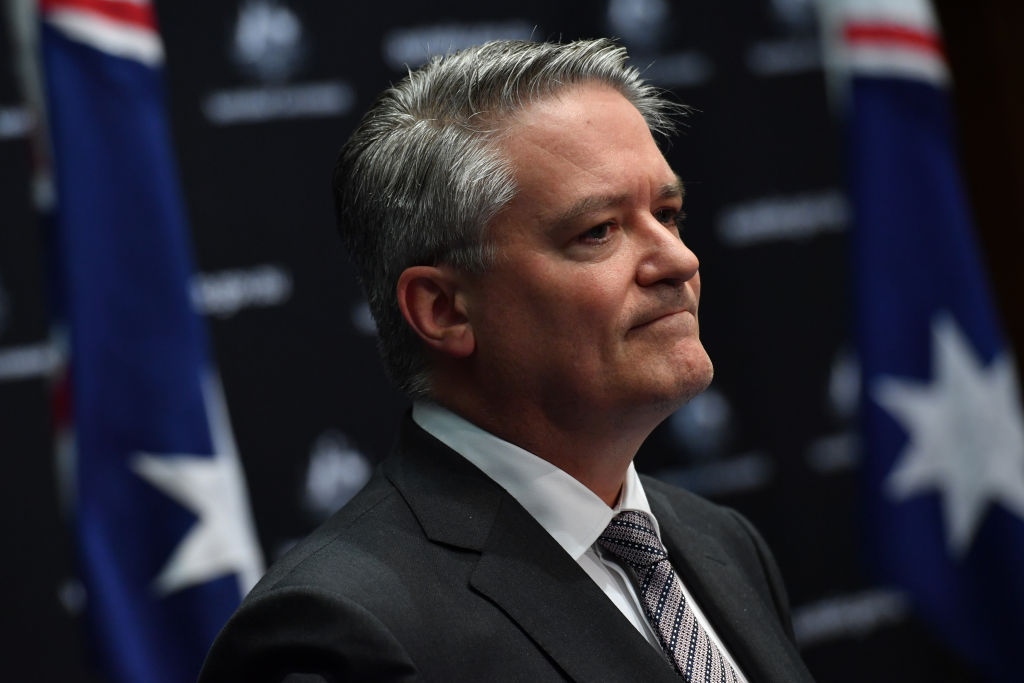What an Australian secretary-general of the OECD means for China

China’s economic embargo of Australia helped to persuade several OECD members, including the United States and Canada, to back Australia’s Mathias Cormann as the organisation’s new secretary general, according to the Center for Strategic and International Studies, a Washington-based think tank.
‘Cormann’s selection sends a clear message that the OECD is not willing to cede the Asia–Pacific region to the influence of authoritarian states,’ a CSIS report says.
Although no one suggests that the former Australian finance minister will turn the 37-nation Organisation for Economic Cooperation and Development into an arm of US President Joe Biden’s crusade for global democracy, Cormann will be in a position to influence its agenda on issues highlighting China’s departure from global economic norms, such as state subsidies, intellectual property protection, labour standards, policy transparency and competition policy.
Should Cormann wish, he could raise the use of economic coercion as an issue of global concern, including by placing it on to the agenda of the G20.
Cormann is expected to encourage the expansion of the still heavily Eurocentric membership of the OECD into Asia, potentially including India, Indonesia and Malaysia.
The OECD’s origins were as an institution assisting European economic reconstruction in the wake of World War II, with its membership opened to non-European advanced nations in 1961.
It offers policy advice to its members and is also the architect of international agreements, conventions and guidelines on issues such anti-bribery, tax administration, development assistance, multinational investment and environmental policy. It also provides benchmark statistics in many areas, including pensions, health, school education standards and budget policy.
The OECD secretary-general has a seat at G20 meetings alongside the managing director of the International Monetary Fund and the body has sponsored other pivotal global agencies, including the International Energy Agency and the Financial Action Task Force.
With a staff of around 3,500, including 2,500 researchers, and an annual budget equivalent to $610 million, the Paris-based institution exercises a powerful influence on global economic policy.
Cormann was an outsider for the post. He didn’t have a history of engagement in global economic policy issues, besides occasionally representing Australia at IMF and G20 meetings, when Scott Morrison, in his former role as treasurer, was too busy to attend.
By contrast, his final rival, Sweden’s Cecilia Malstrom, had spent five years as the European Union’s commissioner for trade and had also been its minister for EU affairs and home affairs.
Australia’s reluctance to adopt ambitious targets on climate change and its continuing commitment to coal counted against Cormann’s candidacy. Malstrom supported tougher action on climate change, including Europe’s proposed carbon taxes on imports. There was also a view among some members that the job should go to a woman.
On the other hand, Cormann had much more enthusiastic support from his home government than did Malstrom, who was from a minor party in the Swedish opposition. The CSIS argues that Australia’s strong conviction that a key multilateral institution required leadership in the Asia-Pacific found favour with the Biden administration.
At the heart of Biden’s foreign policy is a belief that a revival of multilateralism, which had been shunned by his predecessor Donald Trump, is required to manage the rising power of China.
The OECD is distinct among multilateral institutions in having a membership composed of advanced and (relatively) democratic nations. It does not include either China or Russia.
Former World Bank president and US trade representative Robert B. Zoellick argued that China should be encouraged to become a ‘responsible stakeholder’ in global organisations, following its accession to the World Trade Organization in 2001.
China has, indeed, taken on leadership positions in many international agencies since then, including United Nations agencies: the International Telecommunication Union, the International Civil Aviation Organization, the UN Industrial Development Organization and the Food and Agriculture Organization. Last year, China won a seat on the UN Human Rights Council.
However, its engagement has not brought any shift in its values or led to any moderation of the state-led capitalism which the US believes brings unfair advantage to Chinese enterprise.
The CSIS argues in another report that ‘China’s growing interest and influence in multilateral organizations may preclude accountability mechanisms—specifically those associated with good development practice—from operating transparently and appropriately.’
It suggests that the OECD, as an exclusive group of the world’s most advanced free-market economies, has the opportunity to develop improved accountability standards.
The OECD’s outreach program includes China among five ‘key partners’ alongside India, Brazil, Indonesia and South Africa. They have observer status on OECD committees and agree to be bound by OECD legal instruments, such as the anti-bribery convention.
In principle, being a ‘key partner’ is a step along the pathway to membership. The OECD has expanded membership in recent years to include Latvia, Lithuania and Colombia. Brazil and Argentina are both in discussions about membership.
There has been debate within the OECD over whether membership should be extended to China, given it is by some measures the world’s largest economy and has committed to key OECD agreements.
‘Within the OECD, advocates of inviting China to full membership argue that it would result in China committing to the practices of OECD countries and working further towards an open market structure while expanding access to the OECD for policy work in the region,’ the CSIS says.
However, membership requires commitment to the OECD values of ‘democracy based on the rule of law and human rights, and adherence to open and transparent market economy principles’.
The US and, it is to be presumed, Cormann, believe China falls far short of these minimum standards.